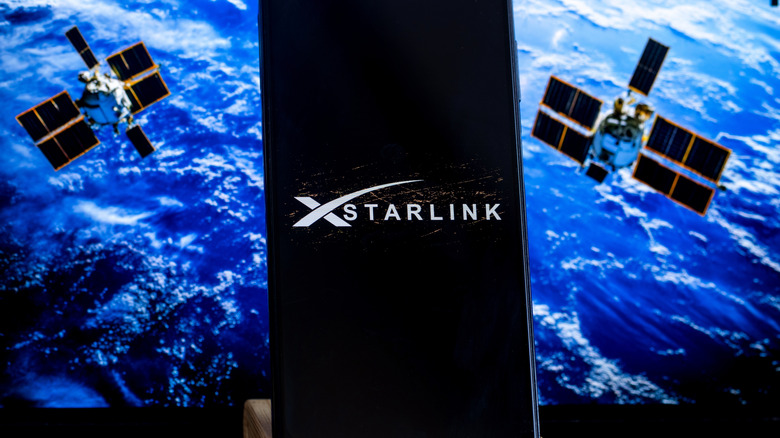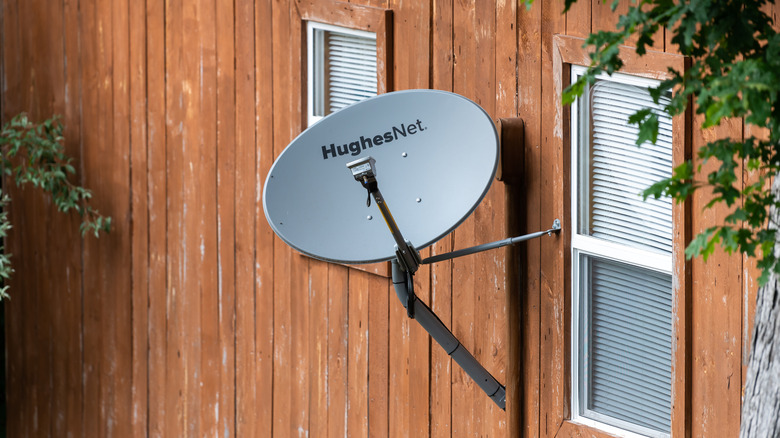This Major Internet Provider Is Struggling Because Starlink Stole Its Customers
Starlink is exploding at a rapid rate, both in popularity and in terms of overall growth. In fact, SpaceX's satellite internet service surpassed two million U.S. subscribers in 2025. That makes a worldwide total of more than 6 million users, up from 4.6 million in 2024. But Starlink's rise has had a major impact on HughesNet, which has been one of the best and only Starlink alternatives out there.
The issue is that Starlink, which users believe is reliable, is taking over in rural areas where Hughesnet once thrived. Customers in those regions benefit from a fast, low-orbit satellite network, which is exactly what Starlink provides. The more customers Starlink takes from those areas, the more HughesNet's current and potential customers will likely begin to jump ship. In the end, HughesNet hasn't found a way to keep up with the loss of subscribers or to otherwise prevent users from moving to Starlink.
However, instead of attempting to fight back, HughesNet's parent company, EchoStar, has made a deal with SpaceX. That deal consists of a referral program that HughesNet can offer to its existing customers, which will direct them to Starlink for internet service. This deal, while encouraging users to leave, does allow Hughesnet to keep some revenue in the process. But this may not be enough to save Hughesnet in the long run. According to Space Intel, Hughesnet may file for bankruptcy and be forced to eventually step back from the broadband internet consumer market.
Hughesnet has a history of problems
HughesNet's business has been steadily declining, with the company reporting year-over-year quarterly losses in 2023. EchoStar attributed those losses not only to competitors' efforts, but also to restrictions in its current satellite network. As a result, HughesNet, which isn't considered the best home internet provider in terms of customer satisfaction, began moving more toward enterprise-level customers. It's a direction the company has been increasingly prioritizing.
In an effort to address some of these problems, HughesNet made a move to invest in its infrastructure in 2023 with the Jupiter 3 satellite. The satellite was designed to improve internet download speeds, and when it was launched, it seemed to be just what the company needed. But HughesNet's issues are also linked to the actual positioning of its satellites, which doesn't facilitate a positive real-time internet experience. The fact that HughesNet doesn't have as many satellites as other providers also doesn't help matters.
Satellite positioning is also to blame for HughesNet's struggles during bad weather. Heavy rain or thunderstorms can interrupt the signal, which affects usability. Monthly data allowances have been a problem too, because once subscribers pass those limits, internet service inevitably slows down. However, the company hasn't introduced an unlimited data option that solves the problem to this point. Despite any work to improve its user experience, HughesNet has fallen so far behind that it may be impossible to catch up.

